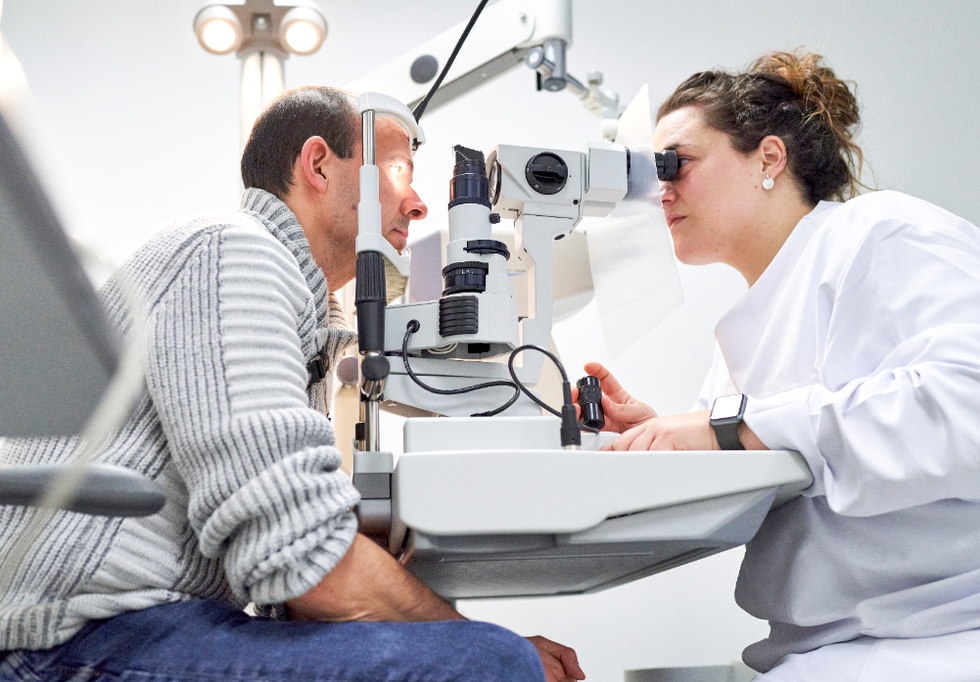An early sign of dementia can show up in your eyes – and even appear before memory loss in people with Alzheimer’s disease, a leading neurologist has revealed.
It serves as a chilling reminder that there are many signs of brain decline to watch out for and it’s easy to fall asleep at the wheel.
The early sign could be detected by eye doctors if they know how to spot a condition known as posterior cortical atrophy (PCA), also referred to as Benson’s syndrome, health researchers at the University of California in San Francisco.
Benson’s syndrome is a rare degenerative condition in which damage occurs at the back (posterior region) of the brain. In the vast majority of people, the cause is Alzheimer’s disease.
Difficulties with reading can spell Alzheimer’s
Getty Images
The condition is often described as a visual variant of Alzheimer’s, giving rise to the following symptoms:
Blurred vision
Difficulties reading (particularly following the lines of text while reading) and writing.
According to Dr Marianne Chapleau, a neurologist from the University of California’s Department of Neurology, allocating greater resources to diagnosing PCA could change the quality of life for many patients who are in the primary stages of developing Alzheimer’s.
She said: “Most patients see their optometrist when they start experiencing visual symptoms and may be referred to an ophthalmologist who may also fail to recognise PCA. We need better tools in clinical settings to identify these patients early on and get them treatment.”
PCA holds particular promise for diagnosing dementia early because the signs of PCA surface before the age of 60.
Crucially, this is usually before the first signs of memory loss and confusion show up in those developing Alzheimer’s.
Writing in her research paper, Dr Chapleau’s notes that people with PCA first visit a doctor on average three years after symptoms appear.
By this time, mild or moderate symptoms dementia can be clearly seen, Dr Chapleau says.
PCA sufferers often present signs of what’s known as “constructional dyspraxia, space perception deficit, and simultanagnosia” when they were diagnosed, an inability to copy a drawing or build a simple model, researchers say.

The early sign could be detected by eye doctors, experts say
Getty Images
It’s also important to be aware of the other symptoms associated with Alzheimer’s.
These include:
- Progressive memory loss
- Confusion, disorientation and getting lost in familiar places
- Difficulty planning or making decisions
- Problems with speech and language
- Problems moving around without assistance or performing self-care tasks
- Personality changes, such as becoming aggressive, demanding and suspicious of others
- Hallucinations (seeing or hearing things that are not there) and delusions (believing things that are untrue)Low mood or anxiety.
“If you’re worried about your memory or think you may have dementia, it’s a good idea to see a GP,” notes the NHS.

Sarah Carter is a health and wellness expert residing in the UK. With a background in healthcare, she offers evidence-based advice on fitness, nutrition, and mental well-being, promoting healthier living for readers.








